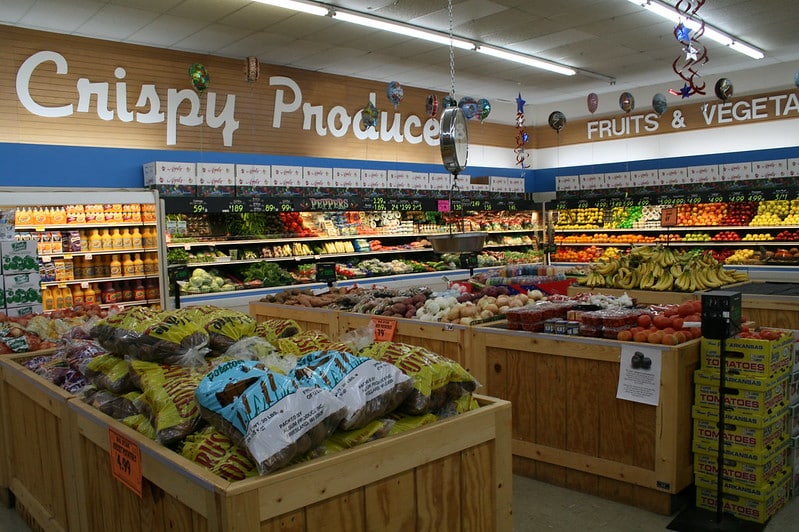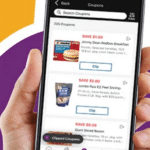
It’s a common complaint that there never seem to be coupons available for healthy items like fruits and vegetables. But a new report finds that shoppers are looking for them – and when they find them, coupons now influence their purchasing decisions more than old-school methods that used to work, but don’t seem to work so well anymore.
FMI – The Food Industry Association has published its latest annual “The Power of Produce 2024” report. It found that we’re not doing such a good job eating our fruits and veggies, but that price is part of the problem – and promotions could be part of the solution.
“Fresh produce purchases reflect a constant balance between money-well-saved and money-well-spent,” the report reads. Fresh fruit prices increased 1.1% over the past year, while fresh vegetable prices rose 3.8%. “This is below the rate of inflation for total food and beverages,” FMI pointed out. Yet produce is one area where shoppers seem to be cutting back to save money.
The report found that fewer people are buying fresh produce, and daily consumption of fresh fruit and vegetables dropped to a seven-year low, with just 30% saying they eat fresh produce items every day. Half said they do so just two days a week or less.
Part of the problem is concern that fresh fruit and vegetables will end up going to waste, as opposed to boxed or frozen foods that last longer. Six out of ten survey respondents told FMI that fresh produce waste at home “is an issue that they cannot financially afford.”
So when they do buy produce, they want a deal. One-quarter of shoppers ranked price as the top factor when buying fresh fruit and vegetables. Combined with attention to ripeness and appearance, “value wins over price alone,” FMI found. And “the shopper’s eye is on sales promotions. Relevant promotions can influence shoppers to change the amount, types or brand of fruits and vegetables they purchase.”
71% of shoppers check produce specials at their primary store, while 61% compare promoted prices at two or more stores. But “the once-dominant paper circular has dropped to fifth place in the list of ways in which shoppers check fresh produce promotions,” FMI found. “In-store signage, followed by digital coupons, the store app and loyalty programs are now more important than the paper circular, especially among younger shoppers.” Paper coupons are further down the list, but with 28% of shoppers seeking them out, even the influence of paper coupons can’t be ignored.
Some three-quarters of all shoppers have noticed that fruit and vegetable prices are higher. When asked whether they’ve made any changes to their produce purchases as a result of higher prices, a third say they’re seeking out more deals.
So “be a fresh produce destination,” and “leverage relevant sales promotions,” FMI advises retailers. Especially traditional grocery stores, which are losing ground to discounters.
Shoppers say they typically purchase fresh produce at an average of two to three different types of retail formats. “Traditional supermarkets and health/organic specialty stores have been losing share since 2020,” the report found, while “more consumers purchased fresh produce at mass/supercenters.” Grocery stores remain the top choice, with 74% buying produce there, but 57% now get their produce at supercenters and still others opt for club stores, discount grocers and dollar stores.
It’s said that the most expensive food is the food you waste. So coupons and deals are important in encouraging us to buy more fresh fruits and vegetables, but so is some reassurance they will last long enough for us to actually eat them. “We are seeing consumers being more deliberate in their produce purchases to avoid food waste,” Rick Stein, vice president of fresh foods at FMI, said in a statement. “Food retailers have the opportunity to educate shoppers on their food waste reduction programs and offer waste reduction tips that allow shoppers to fully benefit from their produce purchases.”
And deals won’t hurt, either. “Price has not been the predominant driver of purchases in recent years, but rather appearance and ripeness,” Stein continued. “Now, price is back in play.”
So eating more fresh fruits and vegetables can make you healthier. And if you shop at a store that offers produce coupons and discounts – they just might help you become financially healthier as well.
Image source: Lindsey Turner










